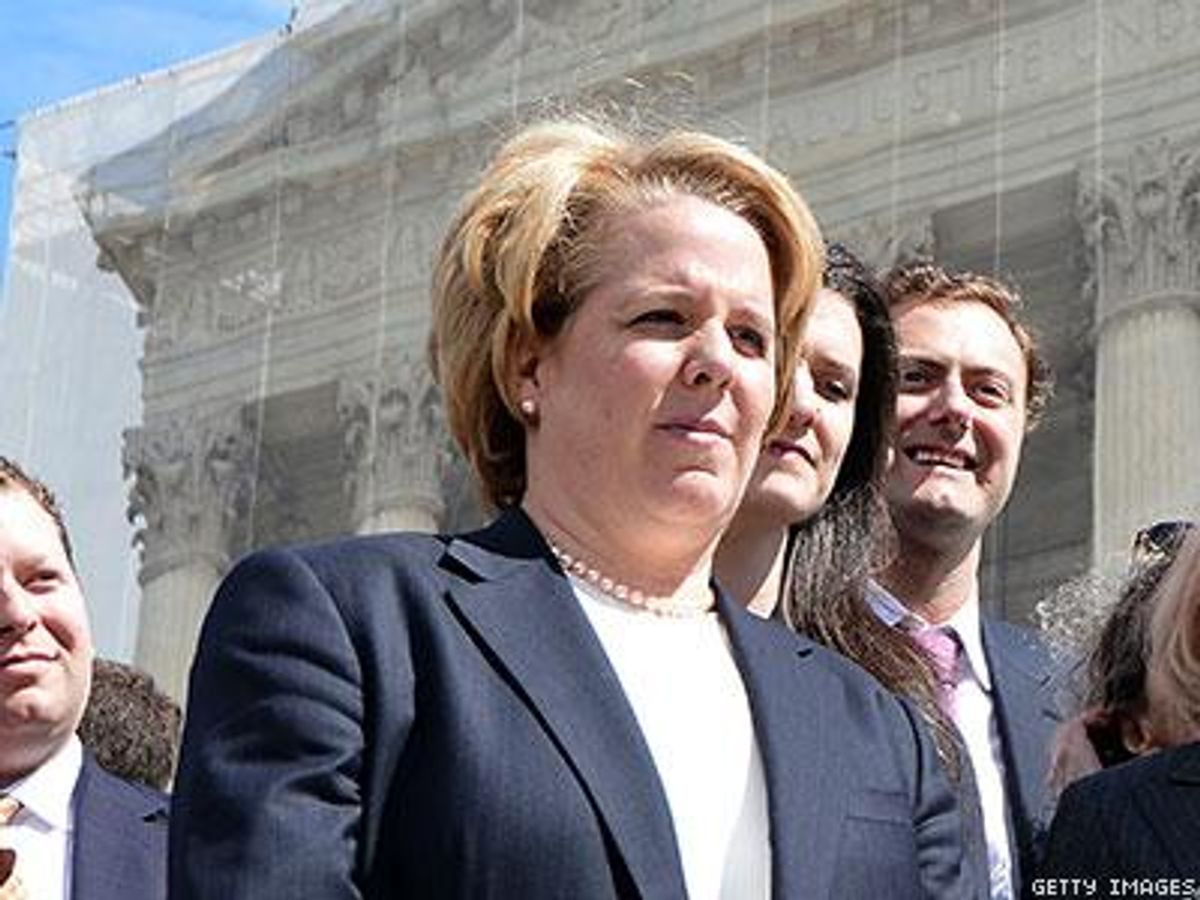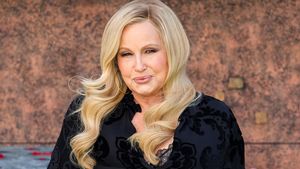Marriage equality continued its spread to conservative states this week, with licenses issued in Kansas and a ban overturned in South Carolina. Mississippi could be next on the list, thanks to a powerful attack on the state's marriage ban by attorney Robbie Kaplan.
Kaplan, whose winning Windsor v. U.S. lawsuit ended the federal Defense of Marriage Act, was in Jackson, Miss., on Wednesday for a marathon six-hour hearing. Kaplan brought the federal suit along with two lesbian couples and The Campaign for Southern Equality. Earlier this week, the out attorney explained her involvement in the case to The Advocate, describing her personal stake in protecting equality for LGBT families.
Representing Governor Phil Bryant and Attorney General Jim Hood, state attorney Justin Matheny struggled to keep up with Kaplan's arguments, which closely mirror those deployed in other states that have won the freedom to marry. "When I found out I would be the one to come to court and argue this case, I had to do some research," the state's attorney told the court, according to the Clarion-Ledger.
One court observer wrote, "Watching the brilliant Roberta Kaplan and the State's attorney argue this case is like watching Aretha Franklin versus a drunk, bumbling fraternity guy in a singing contest."
Kaplan's complaint on behalf of the same-sex couples cites numerous irreparable harms pertaining to parenting rights, health benefits, and taxation, and argues that the state's ban violates the Due Process and Equal Protection clauses of the U.S. Constitution.
In its reply brief, the state of Mississippi argued that the 42-year-old Baker v. Nelson decision prevents federal courts from ruling on marriage. In addition, the state has written that gays and lesbians are not a suspect class, entitled to heightened protection, and that marriage is a fundamental right for straight people but not for gay people.
These are fairly typical arguments in favor of marriage bans, and they have generally failed in other federal courts. There have only been two federal judges to uphold marriage bans in the past year, one of whom was in neighboring Louisiana. That case is now pending before the Fifth Circuit Court of Appeals, which also covers Mississippi.
The other federal decision upholding bans on marriage equality came from the U.S. Court of Appeals for the Sixth Circuit, maintaining marriage bans in Ohio, Michigan, Tennessee, and Kentucky. That decision, handed down earlier this month, also cited Baker as controlling precedent, though many other federal courts have determined that more recent rulings effectively invalidated the standard set in the 1972 case that determined there was no "substantial federal question" at issue regarding same-sex marriage.
Judge Carlton W. Reeves, an Obama appointee who once worked with the American Civil Liberties Union, questioned both attorneys, but directed most of his inquiry towards the state.
At one point, state attorney Justin Matheny claimed that the state had a vested interest in only allowing couples who can biologically reproduce to marry. "You allow people in prison to be married, and there are no more conjugal visits," Reeves retorted.
Reeves promised to rule "as soon as possible."


















































































